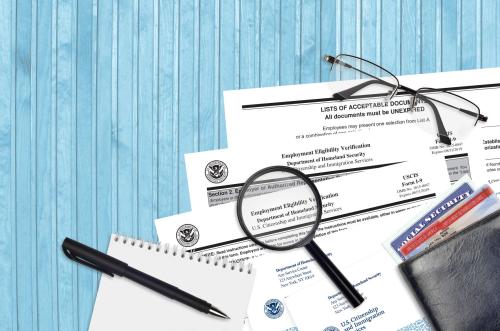Policy-makers and economists from a variety of perspectives have rapidly coalesced around agreement on three economic issues. First, a spate of bad news, including a jump in the unemployment rate, a decline in consumer spending and a plunge in housing starts, leave little doubt that the economy is weakening. Second, well-designed fiscal stimulus, in the form of increased government spending or tax reductions, has the potential to help cushion the economic blow. Finally, most agree that any well-designed stimulus should be timely, temporary and targeted – the “three T” principles enunciated by economists as diverse as Lawrence Summers, Martin Feldstein, and Federal Reserve Chairman Ben Bernanke and accepted by leaders from both political parties.
The three Ts are important because fiscal policy can only play a supporting role in curbing economic troubles, and the principles are critical to ensure that any benefits do not come at the expense of serious long-run harm. The Federal Reserve is capable of acting quickly and dramatically to stabilize the economy, as evidenced by its recent 75 basis point cut in the federal funds rate. But the Fed faces one major limitation: it takes about a year for its interest rate moves to have a major effect on economic output and jobs. While the recent round of interest rate cuts will have some effect on the economy this year, we probably will not see the full impact on the aggregate economy until 2009.
The rapidly evolving downturn provides a motivation for timely fiscal stimulus which, if well designed, could raise economic output and create jobs by the middle of 2008. It also provides a motivation for keeping fiscal stimulus temporary. Based on current forecasts, the economy does not need a boost in 2009. If Congress and the president give it one, then the Federal Reserve is likely to offset the fiscal stimulus by not cutting interest rates as much as it would otherwise have. In addition, helping with our short-term weakness should not unnecessarily toll our long-term budget deficit.
Any steps that policy-makers take must be targeted for two senses: helping those who most need to be protected from the downturn and achieving the maximum bang-for-the-buck in added output for a given budgetary cost. Fortunately, these are complementary, as the households most in need of money are also the families most likely to spend it —thus boosting aggregate economic activity.
We recommend three measures as most suitable to the task. One is a temporary increase in food stamps, a step that could be implemented quickly through electronic debit cards and would go to families likely to spend much or all of the money. A second is a temporary extension of unemployment benefits, reflecting the fact that the long-term unemployment rate is already nearly double what it was going in to the last recession, may well rise further in coming months, and the unemployed will spend a very large fraction of these benefits. To reach the broadest group, the third and largest step we urge is a temporary, one-time refundable rebate aimed at all working households.
Some other measures do less well in meeting the goals of the three Ts. For instance, limiting rebates only to households that pay income taxes, a step reportedly under consideration by the Bush administration, would ignore many hard workers, like the more than 25 million households who pay payroll taxes but do not earn enough to pay income taxes. Plus, another 20 million working households who pay relatively low-income taxes would get only a limited rebate, not the full amount. This undermines the fairness of the plan, and would also reduce its overall effectiveness by denying payments to families most likely to spend them. Analysis by Mark Zandi of Moody’s Economy.com, for example, finds that rebates would be 24 percent more effective at stimulating the economy if they were made refundable for low-income households.
Temporary tax breaks to encourage business investment may not be much of a panacea either. Such a measure was not very successful when it was employed in the last slowdown because it is hard for businesses to turn on a dime with complicated investment decisions. The end result is that much of the cost of the proposal would simply reward existing investment.
Three simple principles on which policy-makers agree. Now, let’s apply those principles to ensure that any actual legislation is timely, temporary, and targeted.



Commentary
Op-edThree Keys to Effective Fiscal Stimulus
January 26, 2008